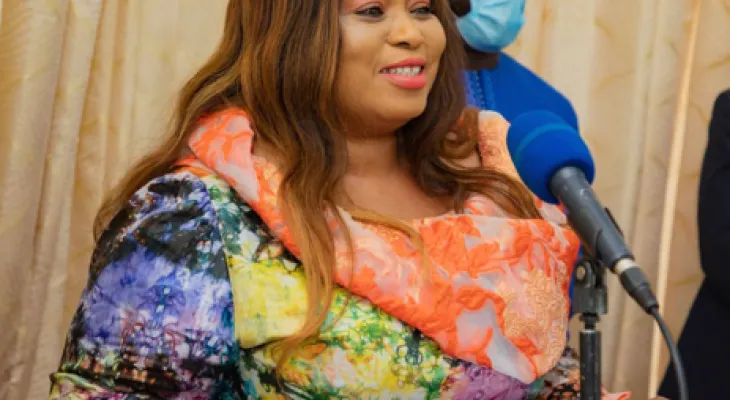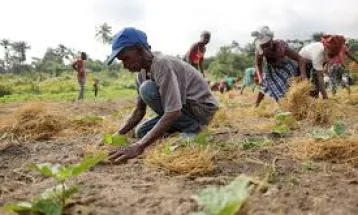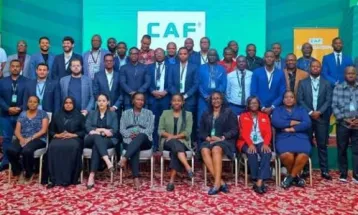
Transforming gender norms in Sierra Leone
By Abu Bakarr Tarawally
The West African country, with a population of 7,548,702, has a 51% female and 49% of the male population. Sierra Leone has a dominant male culture which, in effect, does not favour the female gender.
Society, like many others, has gendered norms and stereotypes that limit women in many respects. The context in Sierra Leone, in the recent past, is such that: women are prepared to be mothers only, and men to be technical workers and leaders. Sometimes the parents favour boys over girls explicitly by educating boys but not girls. More often it happens subtly –encouraging boys to be leaders and to excel in technical subjects like maths and sciences, and steering girls towards more “feminine” pursuits like cooking, cleaning, and caregiving.
The traditional division of labour deprives individuals, families, and communities of reaching their full potential. Girls and boys, women and men should contribute to the well-being of their families by taking on household responsibilities. The same applies in terms of participating in economic opportunities.
Away from the school scenario, masculinity, in the Sierra Leonean context confers huge powers on men over women. The power to treat the women folks to domestic servitude and above all the power to mistreat women. Some religious doctrines also support male dominance such that their inferiority concepts breed contempt, some to the point of death.
Human rights violations have characterised many homes. The extent to which Gender-based violence (GBV) had reached its peak became a serious and urgent concern. The Government of Sierra Leone, under the leadership of Ahmad Tejan Kabbah, promulgated laws to nip in the bud Gender-Based Violence by enacting the Domestic Violence Act[1] 2007. This Act introduces the crime of domestic violence that covers violence occurring in a domestic relationship i.e. between couples, partners, parents and children, and other family members. It seeks to address the high incidence of domestic violence in Sierra Leone which sometimes results in death.
There was also the Devolution of Estates Act[2], 2007, Act, No. 21 of 2007. This was a statutory law, which guarantees the inheritance rights of women and children married under customary law and co-habiting partners. Section 1: “This Act applies to every person who dies leaving property in Sierra Leone irrespective of religion or ethnic origin. (3) This Act shall not apply to family property, chieftaincy property, or community property held under customary law.”
The year 2018, saw a shocker in the number of reported SGBV cases across the country. The leading service providers for SGBV victims –the Rainbo Initiative and the Family Support Units (FSU) of the Sierra Leone police, reported cases of SGBV from 4,000 in 2017 to 8,500 in 2018. 90% of these cases involved under-aged girls.
According to the 2019 Sierra Leone Demographic Health Survey, an estimated 62 percent of women aged 15–49 report having experienced physical or sexual violence. With the onset of the COVID-19 pandemic, it was feared that the rates of GBV, which were already unacceptably high in Sierra Leone, would be exacerbated. Sixty-one percent of ever-married women aged 15-49 have experienced spousal violence whether physical, sexual, or emotional by their husband or partner. This alarm led to interventions and actions by civil society actors, national and international NGOs, and the Government of Sierra Leone.
The Government introduced several measures in quick succession, including the declaration of a national emergency on SGBV in 2019, the enactment of an amended Sexual Offences Act in 2019, and the enactment of the National Male Involvement Strategy[3] for the Prevention of Sexual and Gender-Based Violence in Sierra Leone in 2020. The amended Sexual Offences Act prescribes harsher sentences for offenders ranging from 15 years to life imprisonment. In addition to the amended law, the President also announced the creation of a police division, a special magistrate court to try sexual abuse cases, and a public hotline for the reporting of sexual violence, but with no secure funding. In addition to this, the Ministry of Gender and Children’s Affairs also developed an SGBV Response Strategy, an SGBV Prevention Strategy, a Partnership Strategy on SGBV, and SGBV Coordination Strategy. In partnership with Rainbo Initiative, they established One Stop Centres across all districts providing Free Comprehensive Survivors-centered services in response to SGBV.
GBV is seen as a societal issue based on patriarchal beliefs, norms and practices that cannot be seen exclusively as solely a women’s or men’s issue. Addressing GBV as a societal issue, therefore, enables the empowerment of women, the reclaiming of safe spaces, the deconstruction of masculinity and the dismantling of gendered power relations and privilege. Within this framework, it is argued that men need to be seen as part of the solution, not just as part of the problem and that they need to be involved and challenged, through education and awareness raising, to critically reflect on the pervasiveness of patriarchy, male power and privilege and the costs of violence against women to men and boys, as well as women and girls (Connell and Messerschmidt, 2005; Waling, 2019).
[1] Domestic Violence Act 2007-20p.pdf
[2] https://old.sierralii.org/sl/legislation/act/2007/21
[3] National Male Involvement Strategy for the Prevention of GBV in SL 2020.pdf (unfpa.org)




















